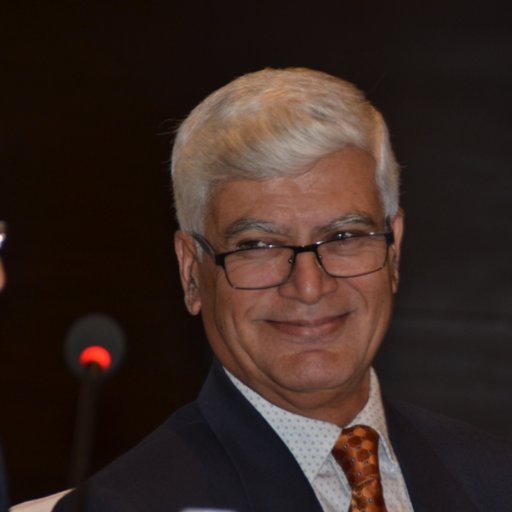Opinion
The Trump-Kim summit
Singapore summit could be an important milestone in bringing peace in the peninsula
Shambhu Ram Simkhada
From threats and insults to suddenly exchanging compliments and optimism of friendship, high drama best describes the 12 June, 2018 Trump-Kim Summit. Trump and Kim have demonstrated that leadership of courage and conviction can think above skepticism of academics and professionals and act beyond hesitations of officials and diplomats. They have shown that inter-personal and more importantly inter-state relations can move away from the prejudices of the past with dynamic leadership and help create a new history. Beyond personal courage and conviction to come to Singapore, they now need to convince their own countries and the world that they are not engaging in clever “deals” of short-term personal and partisan gains but are serious in changing the course of history for the benefit of their respective countries and peoples along with the betterment of mankind as a whole.
Understanding history
If observers of contemporary international relations (IR) are to name two countries with diametrically different political, economic, social and security perspectives and worldviews, they are the United States (US) and the Democratic People’s Republic of Korea (DPRK). Their enmity started with the Korean War (1950-53), the South supported by the US and the North mostly by the newly established People’s Republic of China (PRC). The state of war continues for almost 70 years with 32 thousand American troops guarding the demilitarised zone (DMZ) between the prosperous Republic of Korea (ROK) in the south, under the security umbrella of the US and the Kim family ruled Communist DPRK regime in the north supported by China.
At different times and levels attempts were made to change the diplomatic dynamics in the Korean Peninsula but to no avail. This relationship started worsening after North Korea began a serious nuclear weapons program. The situation became alarming after the DPRK started test firing nuclear powered missiles, even inter-continental ballistic missiles (ICBMs), reportedly capable of reaching mainland US. Tensions reached a climax with real risks of nuclear war after the third generation Kim, Kim Jong-un came to power in the DPRK and Donald Trump was elected President of the US. Without a doubt, their unorthodox leadership also created the current “anti-climax” with real prospects of changing the status-quo, not only in the Korean Peninsula but North-East Asia entirely and beyond.
Amidst uncertainties, Trump and Kim met in an unexpectedly friendly atmosphere and signed a four-point agreement, committing to establish new US-DPRK relations for peace and prosperity, make efforts to build a lasting and stable peace regime in the Korean Peninsula, work towards complete denuclearisation of the Korean Peninsula and recovering POW/MIA remains, including the immediate repatriation of those already identified.
Hope, uncertainty and risk
Trump and Kim are right that the past need not dictate the future. But dramatic development in diplomacy often raises hope at best, uncertainty for sure and risk at worst. Historic for sure, the Trump-Kim summit has the potential to change history and future direction of IR. With the Peace Treaty ending their long state of war, America’s relations with the two Koreas and also relations between them will change profoundly, opening even the door for their possible unification eventually. It also sends a message beyond the Korean Peninsula that countries who fought such a painful war and endured such extreme antagonism for so long too can come together by moving beyond prejudices of the past.
The Trump-Kim summit also highlights Chinese President Xi Jinping’s new win-win strategy. It can even re-energise the post-war vision of a collective security, prosperity and dignity within an environment of harmonised individual national interests with regional and global benefits. So, on the conceptual plain, Trump and Kim could unleash thinking about a new global order which may or may not fit their own visions of their countries and the world.
Such a sudden and dramatic development will surely create some uncertainties as well. The “war games” cancellation, welcomed by some, has already started worrying others. The DPRK version of step-by-step process is different from the complete, verifiable and irreversible denuclearisation originally put forth as a condition by the US. But certain question remain such as after the summit between the prime mover and its target, what happens to UN sanctions? How do the more prosperous South Koreans view the cost/benefit of unification? In case situation moves fast towards unification, what will be the nature of the political transition and its implications for Korea, China and the US? How will China and Japan see the prospect of a powerful united Korea, probably with close relation with the US?
Amidst visible delight of the two leaders and their supporters, the Singapore summit has created much hope and some uncertainties. A Lot of detail needs to be worked out fast so as to not risk expectations since they turn into frustrations due to lack of progress. Hence, leadership of courage and conviction must be complimented by comprehension of the complexities and sensitivities not only of these two sides but by other influential actors as well. Role of competent and committed professionals will be crucial to translate the desires of the leaders and hopes of the people.
For me personally, there is a pleasant side in all of this. As a student, teacher and practitioner, I have been an advocate of new thinking in the 21st century diplomacy. Here, I am witnessing with great hope, leadership of courage and conviction moving boldly to redress the problems of the past.
In summit diplomacy, venue and ambiance also act as enabling milieu. Singapore has been an excellent host. With “Gorkhas” involved in the security, Nepal made an indirect contribution. With all of this, the Singapore Summit could be an important milestone in contemporary IR, fulfilling the aspirations of better inter-state relations, improvement in the lives of the people with complete denuclearisation of the Korean Peninsula and bringing peace and prosperity in the region and the world altogether.




 20.06°C Kathmandu
20.06°C Kathmandu










